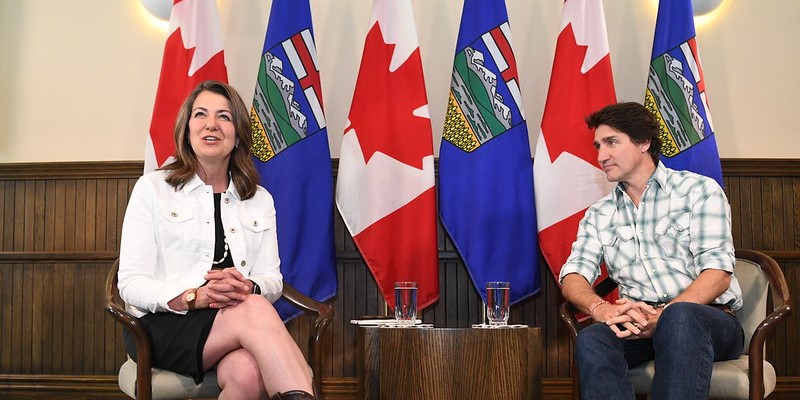Government child-care system squeezing private operators in Alberta

The Trudeau government’s vision for national $10-per-day child care, which is openly hostile to the private for-profit sector, remains a calamity for child-care entrepreneurs and the families they serve—especially in Alberta where private for-profit operators serve about two-thirds of the market. These operators are under increasing financial pressure even as more government money is pumped into the child-care sector with larger government grants effective January 1.
The larger grants are part of the joint federal-provincial child-care agreement, but the problem—aside from the obvious increased burden to taxpayers—is that with government money comes government control. Invariably government control dooms sectors to failure; childcare is no exception. As CityNews in Calgary reports, “some daycare operators say they’re struggling to keep their doors open mainly due to the Alberta government’s new payment model and a fee cap.”
Rent, taxes and labour costs are rising, but the government price control means child-care operators are unable to raise parent fees to reflect the increased cost of doing business. Meanwhile, the portion of fees paid by government is received only after a delay of 40 days or more. “I don’t know how operationally anyone can stay open moving forward,” says Krystal Churcher, chair of the Association of Alberta Childcare Entrepreneurs. “There is no way you can pay your rent and your wages and everything with no access to your revenue for 40 to 45 days.”
Some child-care operators are considering leaving the government child-care program, but that would be damaging, too. Either child-care operators and the families they serve receive no government money (while still paying higher taxes to subsidize child care for everyone else) or the operators take government money but have part of their revenues subject to price controls and have the rest of it received on a 40-day delay. With the government takeover of child care, operators and families are damned if they participate in the program and damned if they don’t.
Churcher noted that many child-care operators froze fees coming out of the pandemic, even with high inflation, and says with the new government agreement private operators will see more losses. This is something the province can ill afford. Child-care enrollment rebounded in 2023 from 2020 levels, with COVID in the rearview mirror, but provincewide enrollment last year was still down about 10 per cent versus 2019—even with so much additional government spending.
While the number of children in child care fell 10 per cent, this has not resulted in lots of extra spaces. On the contrary, among parents with children in child care, 38.7 per cent reported they had difficulty finding that child care in 2023, up from 30.8 per cent in 2022 and 36.1 per cent in 2019. The data point clearly in the direction of supply problems as the cause of Alberta’s worsening child-care sector, which is unsurprising given the challenges government has inflicted on the province’s operators.
Finally, according to the Alberta government, businesses participating in its child-care contract are limited to earning “reasonable profit or surplus.” Who wants to invest in a sector where government says your earnings must fall under what it considers “reasonable” profit? It’s madness, and the more government exercises control over child care the worse off operators—and by extension, families—will be.
Author:
Subscribe to the Fraser Institute
Get the latest news from the Fraser Institute on the latest research studies, news and events.

